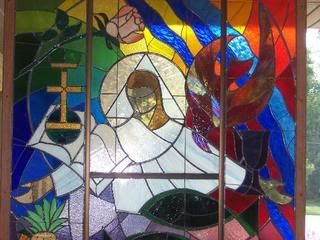1. This is a lot of information that required years of research and
2. John Dominic Crossan is a nerd. Nerds like to talk a lot.
This might end up being a series of posts, now that I think about getting into this.
The first thing that I'd like to talk about is the "Jesus was a country boy" image that a lot of us (including me) have. It's easy to imagine villages like Nazareth being a lot like small towns in the United States except without infrastructure and industry, although this isn't the case. In the first century of the Common Era, major cities were surrounded by smaller villages. The small villages supported the peasants and artisans (like carpenters) while the cities supported higher classes like priests, nobles, land owners, and rulers. In the case of Jesus, he grew up in Nazareth which was a small village outside of Sepphoris (see map).
 Sepphoris was between the Mediterranean Sea and the Sea of Galilee and on a major trade route through the region. Jesus was a native of a village just outside a major city, on a major trade route that stems from a major body of water (the Mediterranean) in a country that was occupied by the Roman Empire. He was no country bumpkin.
Sepphoris was between the Mediterranean Sea and the Sea of Galilee and on a major trade route through the region. Jesus was a native of a village just outside a major city, on a major trade route that stems from a major body of water (the Mediterranean) in a country that was occupied by the Roman Empire. He was no country bumpkin.Because of his proximity to Sepphoris, he would have been familiar with the arts, economics, government (local and Roman), and customs of all classes in the region. This would have made him aware of the struggles of the peasants and the destitute in the area and better able to speak knowledgeably and the brutality of the Roman Empire.

1 comment:
If you want to hear John Dominic Crossan talk a lot more (30 minutes), you can listen to this very engaging NPR link: http://www.npr.org/templates/dmg/dmg.php?prgCode=FA&showDate=01-Apr-2004&segNum=1&NPRMediaPref=WM
Post a Comment